Heart of the Matter: Advancing Women's Health Equity Through Innovation
The missed diagnoses, systemic failures, and innovators rewriting women’s heart health

She feels off. Not in pain, not exactly. Just exhausted – a crushing fatigue that makes climbing the stairs feel impossible. Her chest is tight, but not in the dramatic way movies depict. A wave of nausea hits. She feels warm, feverish even, but chalks it up to stress. A dull ache spreads along her jaw, creeping up the side of her face. She drinks some water, takes deep breaths, and waits for it to pass.
It never does.
By the time she gets to the ER, damage has already been done. The doctors almost sent her home. Her vitals looked fine. She wasn’t clutching her chest. She wasn’t gripping her left arm. But she was having a heart attack.
Why didn’t anyone catch it sooner? Because for decades, cardiac research was built on male-centric data. It wasn't until 1993 that the NIH Revitalization Act mandated the inclusion of women and minorities in clinical trials. This means that for generations, the science shaping our understanding of heart disease was built almost exclusively on Western men, leaving many groups dangerously overlooked.
This isn’t just an oversight. It’s a systemic failure that continues to cost lives. Heart disease kills more women in the United States every year than all cancers combined. Yet, the way it develops and presents in women has long been overlooked in medical training and treatment guidelines. The result? Women often receive interventions designed around symptom patterns that don’t match their own, leading to missed diagnoses and ineffective treatments.
The lack of gender- and race-specific research means women and minorities are more likely to be misdiagnosed or sent home from the ER, their symptoms dismissed as anxiety, indigestion, or even the flu. It means standard diagnostic tools weren’t designed with women and ethnic minorities in mind. It means the very foundation of cardiovascular medicine wasn’t built with them in mind.
But a new wave of innovators is saying enough is enough.
Across the healthcare landscape, startups are taking research, lived experience, and cutting-edge technology to rewrite the future of women’s heart health. These companies aren’t just disrupting an industry; they’re redefining survival. Because when it comes to heart disease, equity isn’t just a moral issue; it’s a matter of life and death.
The Trillion-Dollar Opportunity
Women’s health represents one of the largest untapped opportunities in healthcare and business. With every $1 invested estimated to generate $3 in economic growth, and projections showing that closing the gender health gap could uplift the global economy by up to $1 trillion by 2040.
Few areas illustrate this gap more than cardiovascular disease, which accounts for over a third of the gender health disparity in the U.S. The ripple effect of better cardiac care for women extends beyond individual well-being, translating into substantial economic growth:
Yet according to a report by McKinsey Health Institute, women continue to spend 25% more of their lives in poor health compared to men, a disparity that results in 75 million years of lost life annually. Addressing this gap could have the same economic impact as 137 million women gaining full-time employment by 2040, underscoring the scale of lost productivity and the burden on healthcare.
Despite the overwhelming need, venture funding for women’s health remains disproportionately low. In 2023, less than 2% of the $41 billion in healthcare venture funding was allocated toward advancing women’s health. The majority of that investment focused on reproductive health, leaving critical areas like cardiovascular disease, largely overlooked.
One industry accelerating progress is female technology (FemTech), which is driving innovation in women’s healthcare at an unprecedented pace. With a global market value of $39.29 billion in 2024, the sector is projected to grow at 16.37% CAGR through 2030. Advances in AI-powered diagnostics, wearable biosensors, and virtual care solutions are pushing the boundaries of personalized medicine, making care more efficient and accessible.
Momentum is growing, and investors are taking notice. In the past four years, women’s health startups have secured $2.2 billion in funding, signaling a shift toward recognizing the vast potential in this space. But what sets FemTech apart isn’t just the technology; it’s who’s leading it. 60% of FemTech startups have launched in the past seven years, with women founding and leading 85% of them. Unlike traditional healthcare spaces dominated by male investors, FemTech is built by women, funded by women, and designed to serve women. This shift mirrors a broader trend in venture capital, where female founders and investors are backing companies that directly address gaps left by legacy industries. Those who fail to recognize the massive opportunity in women’s health risk being left behind as forward-thinking investors and innovators reshape the market. Read more about how women-led investments are changing the game here.
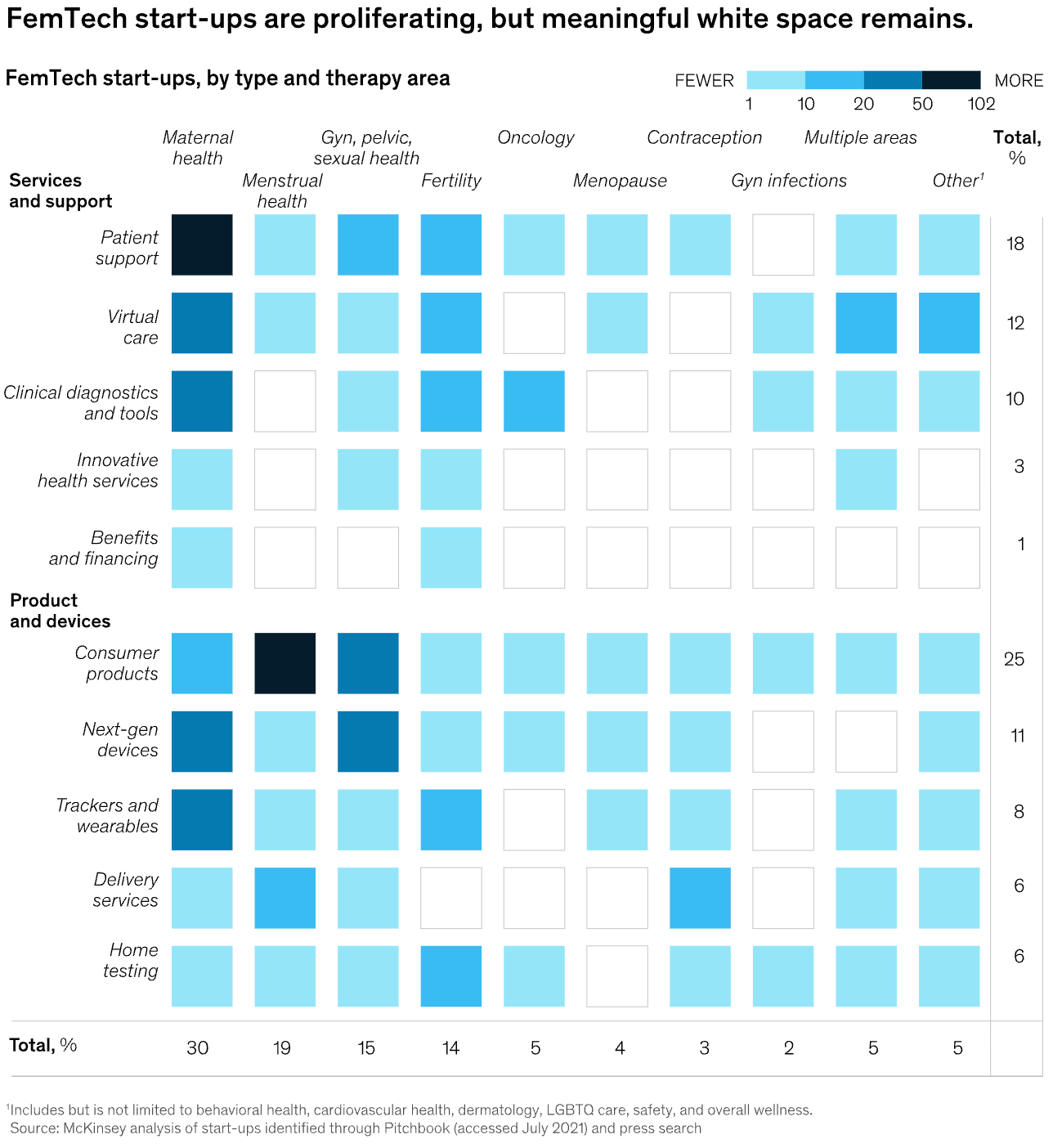
The Innovators Women’s Heart Health Has Been Waiting For
- Founders: Dr. Lindsey Calcutt and Theresa Gevaert
- Their Story: Incora is tackling one of the most overlooked challenges in women’s health: the lack of continuous, real-time data designed for women's unique health patterns. With backgrounds in biomedical engineering, medical devices, and media, they co-founded Incora Health to give women better tools to understand their own bodies
- Breakthrough: A smart earring that tracks biomarkers like progesterone and basal body temperature, providing insights that could one day help women monitor patterns linked to cardiovascular health. While not exclusively focused on heart health, Incora’s platform hints at a future where tracking hormone shifts could support early detection and prevention of heart-related risks
- Funding: $650K raised to date
It’s still early, but we’re watching closely. Join the waitlist here to stay in the loop.
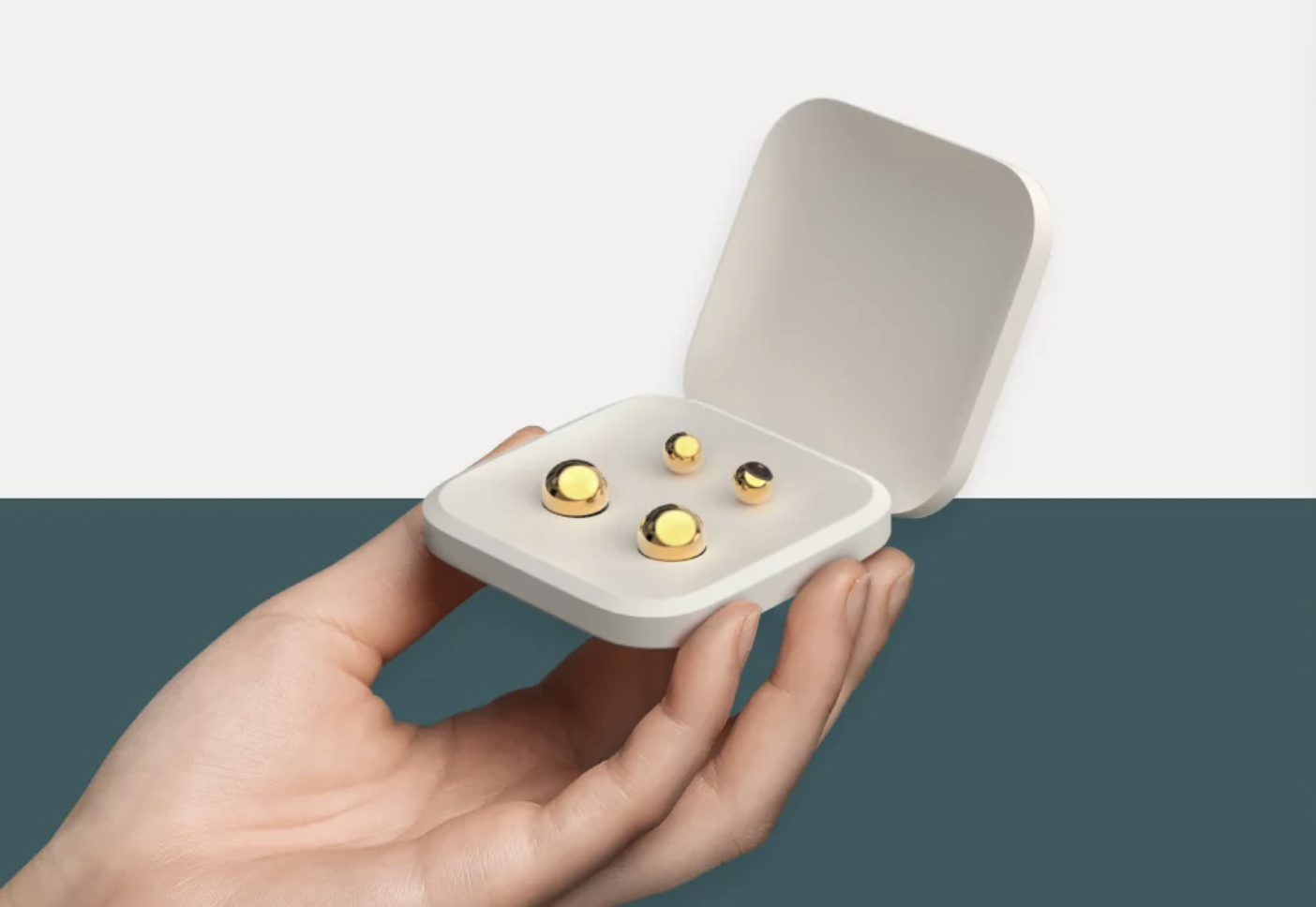
- Founders: Dr. Simin Lee and Lauren McConnell
- Their Story: As a cardiologist, Dr. Lee saw women’s heart disease ignored, misdiagnosed, and dismissed, often mistaken for anxiety or stress. The pandemic only magnified the problem, with patients returning sicker than before, unable to access the care they needed. She teamed up with Lauren McConnell, a healthcare operator, to create Systole Health
- Breakthrough: Systole provides virtual heart health programs where women join doctor-led group sessions, get personalized treatment plans, and track their heart health, all tailored for female cardiometabolic care
- Funding: $2M pre-seed, led by Benchstrength. January Ventures, J Ventures and Tom X. Lee, founder of One Medical

- Founders: Alicia Chong Rodriguez & Aceil Halaby
- Their Story: While studying cardiovascular research at MIT, Alicia Chong Rodriguez realized that most heart health data was based on men, leaving women’s unique risk factors overlooked. She co-founded Bloomer Tech to develop wearable technology that integrates seamlessly into everyday life, ensuring women receive personalized, data-driven heart care
- Breakthrough: Bloomer Tech uses clothing-based sensors to collect real-time cardiovascular data, helping women and their doctors detect early warning signs and manage heart health more effectively
- Funding: $3M seed, led by Material Impact, with One Brave Idea and several angels, including John Abele, co-founder of Boston Scientific
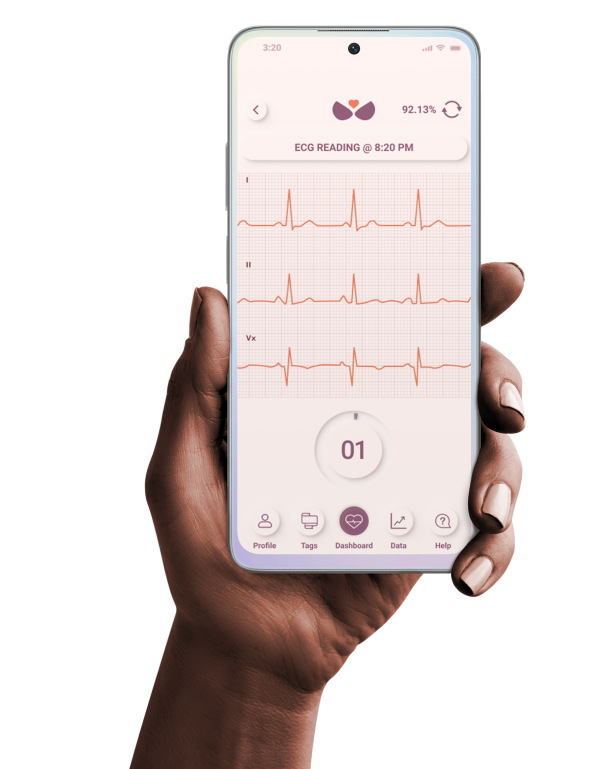
- Founders: Steve Roest, Kiran Roest, Vladimir Gubala
- Their Story: Steve Roest’s firsthand experience with his father’s stroke – caused by undiagnosed cardiovascular disease – shaped his understanding of the real-world consequences of missed diagnoses. Beyond personal impact, he saw how women and underserved communities face systemic barriers to routine heart health screenings, often leading to delayed detection and preventable outcomes
- Breakthrough: A rapid lipid testing platform that provides a full cholesterol profile in under 10 minutes, using a finger-prick blood test and a smartphone app to deliver instant results and personalized risk assessments
- Funding: $16.31M raised to date
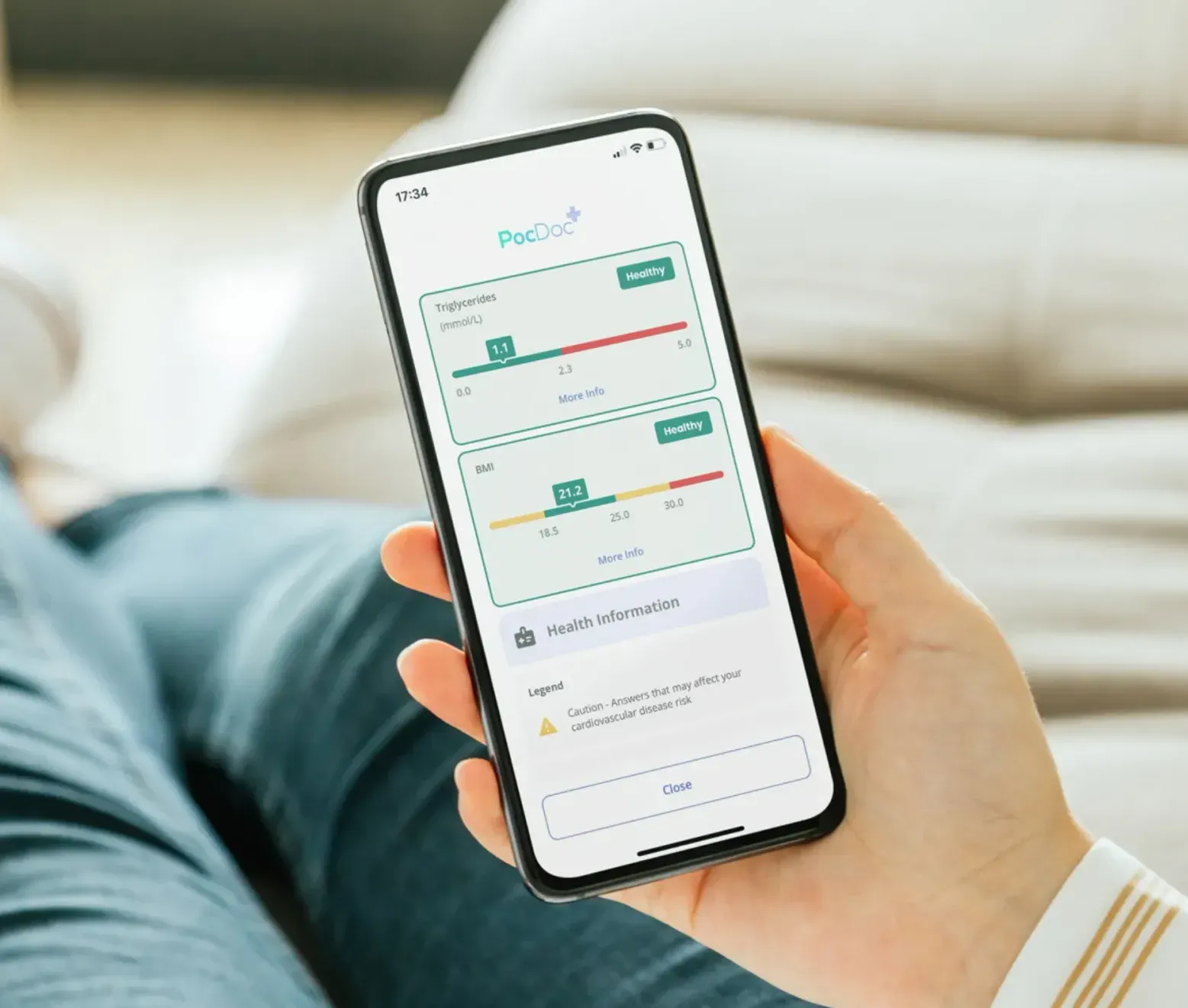
- Founders: Maayan Cohen
- Her Story: After losing a loved one, Maayan Cohen realized how little people knew about their own heart health. She founded Hello Heart, a digital platform that empowers people to track, understand, and improve their heart health using real-time data and personalized insights
- Breakthrough: FDA-cleared blood pressure monitor paired with an app that provides instant feedback, lifestyle recommendations, and heart health tracking to help users take control of their cardiovascular health
- Funding: $138M raised to date
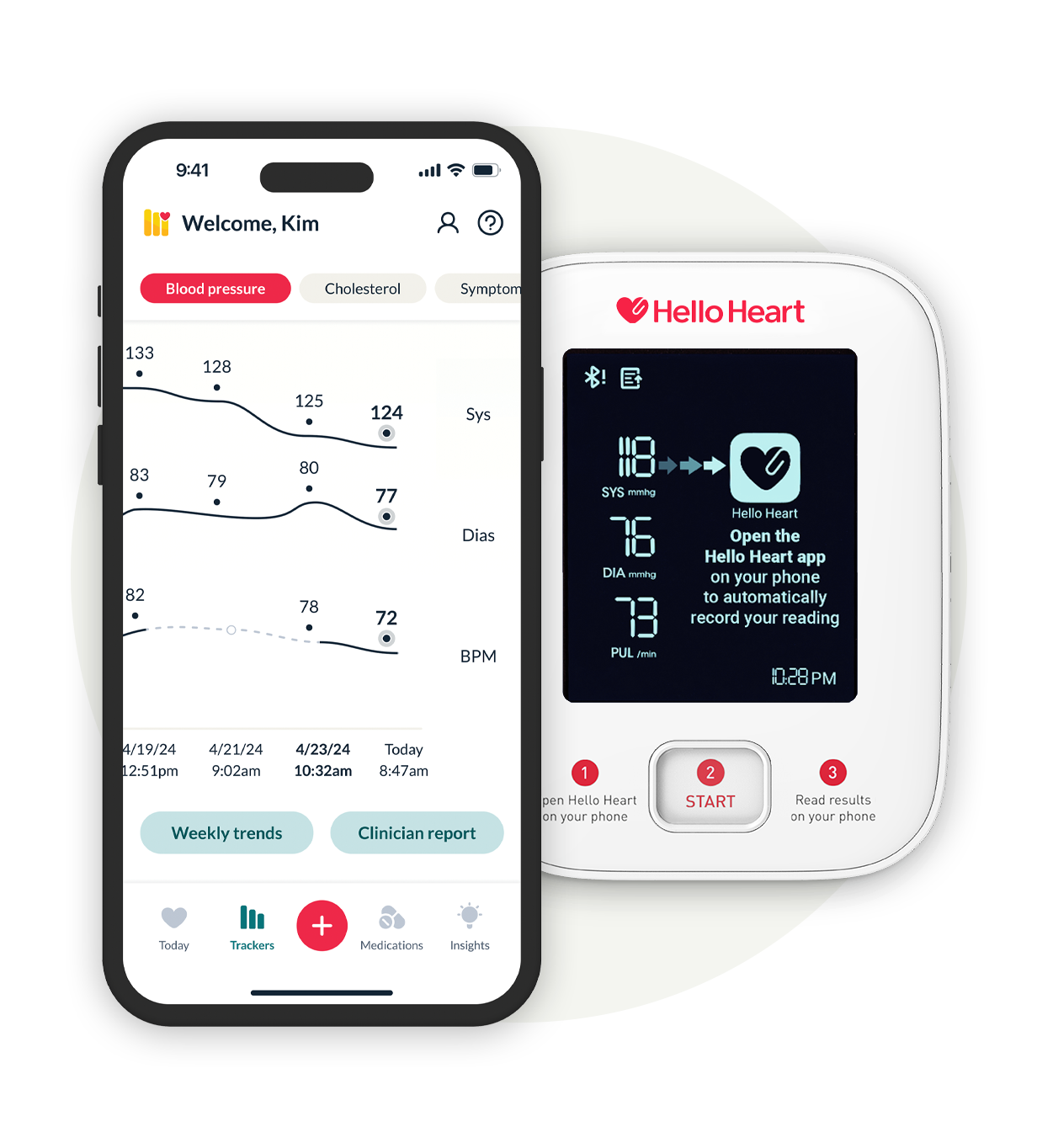
- Founders: Petronela Sandulache
- Her Story: After losing her mother to a preventable misdiagnosis, Petronela Sandulache realized how often women’s heart disease is overlooked, misunderstood, and mistreated. She founded CorDiFio to ensure women have access to early screening, education, and prevention tools, empowering them to advocate for their own heart health
- Breakthrough: A digital health platform that helps women track their heart risk factors, compile their health data, and engage in conversations with doctors to prevent misdiagnosis
- Funding: Undisclosed

Women’s Heart Health Can’t Wait
Women’s heart health has been ignored, underestimated, and underfunded for far too long. The data gaps, misdiagnoses, and one-size-fits-all treatment models have held back progress, but the momentum for change is here. Founders, researchers, and advocates are driving a fundamental shift in how women’s cardiovascular care is understood, prioritized, and treated. It’s time to back them. It’s time to accelerate them. And if you’re building something in this space, I'd love to hear from you.
Because the conversation isn’t about heart disease. It’s about the entire structure of healthcare finally catching up to what women have needed all along.
